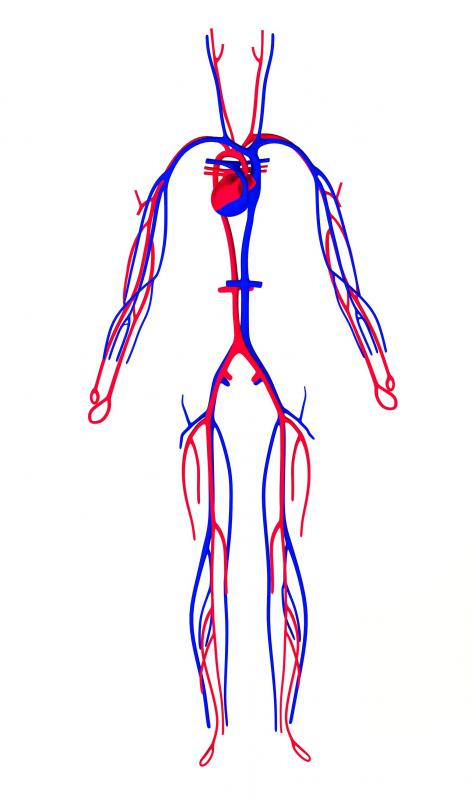At WiseGEEK, we're committed to delivering accurate, trustworthy information. Our expert-authored content is rigorously fact-checked and sourced from credible authorities. Discover how we uphold the highest standards in providing you with reliable knowledge.
What is Atenolol?
Atenolol is a beta blocker prescribed most often for patients who have cardiovascular disease and hypertension. The original purpose of the medication when it was developed in 1976 was to replace a medication called propranolol for the effective treatment of hypertension. The medication essentially slows down the heart rate, making it easier for the heart to keep up and not become overloaded. Atenolol is preferred over propranolol because it does not have the same central nervous system side effects that propranolol does, because it does not pass through the blood-brain barrier. Along with treating cardiovascular diseases and hypertension, this medication can be prescribed for treatment of coronary heart disease, angina, arrhythmias, Graves' disease and to reduce potential risks after a heart attack.
Although atenolol shows good results, there are several potential side effects. Some of the less serious side effects that could occur include depression, confusion, exhaustion, sleeping difficulty, cold hands and feet, dizziness and sexual dysfunction. There also are might be some potentially more serious side effects, such as low blood pressure, skin reactions, visual blurring, difficulty hearing or speaking, hallucinations and difficulty staying steady when walking. Patients experiencing such side effects should seek medical attention immediately. In addition, any severe and unusual discomfort should be brought to the attention of medical personnel immediately.

Caution should be used when atenolol is taken with other medications, some of which could reduce its effectiveness. Vitamin supplements also might have an adverse effect on the benefits of atenolol. For this reason, the patient should discuss any other medications taken regularly with the prescribing physician before taking atenolol.
Additionally, any other conditions under treatment should be discussed between patient and prescribing physician prior to taking this medication. Atenolol might make other conditions worse in patients and could aggravate symptoms. Careful consideration should be taken before beginning this medication, and a complete medical history should be reviewed carefully prior to this medication being prescribed. Women who might be pregnant or who are breastfeeding should not take atenolol without express discussion with their physician, because the medication could harm infants and children. Patients who have had a history of bronchial asthma or hypothyroid disease should use extreme caution when taking this medication.
AS FEATURED ON:
AS FEATURED ON:















Discuss this Article
Post your comments